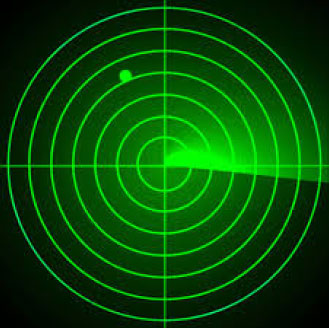Issues on the MCAC Radar for 2023
Update – 10/27/23
Governor Actions
Update – 10/27/23
California’s legislative session wrapped September 14, 2023. The Governor had until October 14 to act on them. Below is a recap of the issues on MCAC’s watch list.
Bills become effective January 1, 2024 unless otherwise indicated.

AB 336 – Workers’ Compensation: Mandatory Disclosure of Class Codes to CSLB – Signed by the governor. Requires contractors to provide their workers’ compensation classification code(s) on their license renewal form and prohibits renewal without the class code(s). Effective July 1, 2024.
AB 521 – Construction Jobsites: Restrooms – Signed by the governor.
Requires Cal/OSHA to consider revising a construction jobsite restroom regulation to require at least one designated restroom for employees who self-identify as female or non-binary by December 31, 2025.
AB 1121 – Public Works: Ineligibility List – Signed by the governor.
Existing law generally requires a contractor or subcontractor to be registered with the Department of Industrial Relations to be qualified to bid on, be listed in a bid proposal, or engage in the performance of any public works contract. Existing law requires a contractor or subcontractor to meet specific conditions to qualify for this registration. Existing law requires the Department of Industrial Relations to maintain on its internet website a list of contractors that are currently registered to perform public work.
This bill would require awarding authorities to annually submit to the Department of Industrial Relations’ electronic project registration database a list of ineligible contractors, as specified, pursuant to local debarment or suspension processes. This bill would require the department to make the list available to the public through the electronic database.
AB 1433 – Public Contracts: School Facility Projects – Signed by the governor.
Expands the requirement of general contractors and specified subcontractors to complete and submit a prequalification questionnaire and financial statement prior to bidding on school construction projects to include projects using state General Fund resources.
SB 553 – Occupational Safety: Workplace Violence – Signed by the governor.
Requires employers to establish, implement and maintain an effective workplace violence prevention plan (WVPP) that includes, among other elements, requirements to maintain incident logs, provide specified trainings, and conduct periodic reviews of the plan. The WVPP requirement is effective July 1, 2024.
MCAC members – Access your free customizable Workplace Violence Prevention Plan
templates from the MCAC website. Contact the MCAC office if you need the Password.
This bill also authorizes a collective bargaining representative of an employee who has suffered unlawful violence from any individual, to seek a temporary restraining order (TRO) and an order after hearing on behalf of the employee(s) at the workplace. The TRO section is effective January 1, 2025.
SB 616– Sick Days: Paid Sick Days Accrual and Use – Signed by the governor.
Increases required employer provided paid sick leave from 3 days (or 24 hours) to 5 days (or 40 hours). Note: Several local ordinances have requirements that go beyond state law. Also, extends procedural and anti-retaliation provisions in existing paid sick leave law to employees covered by a valid collective bargaining agreement (CBA) despite CBA employees being exempt from other provisions of the paid sick leave law.
Employers would be able to limit usage to 5 days (or 40 hours) per year and to cap accrual at 10 days (or 80 hours). It could have been worse! Prior to recent amendments, SB 616 required 7 days of paid sick leave.
SB 630 – Contractors State License Board: Regulation of Contractors – Signed by the Governor.
Authorizes the Contractors State License Board (CSLB) to require every applicant, registrant, and licensee to provide a valid email address and to automatically revoke a license for failure to fully comply with the terms and conditions of probation. This bill also makes confidential email addresses provided to CSLB.
SB 799 – Unemployment insurance: Trade Disputes: Eligibility for Benefits – Vetoed by the Governor. Allows striking workers to claim unemployment insurance (UI) benefits when they choose to strike. Because the UI Fund is paid for entirely by employers, SB 799 effectively adds more debt onto California businesses. The argument has been made that unemployment benefits are intended for workers who are ready and willing to work and who are unemployed through no fault of their own – not for employees that have chosen [through their union) to go out on strike. Governor’s statement here.
Criminal History Regulation Updated – As of October 1, 2023 – California Fair Employment and Housing Act (FEHA) has been updated and new requirements for how California employers with five or more employees can use criminal history information when making employment
decisions go into effect on October 1, 2023. Sample notices are available from the California Civil Rights Department for employers to use. Key updates to the regulation include:
- Employers can’t say in job postings, on applications, or in other hiring materials that individuals with criminal histories won’t be hired. This includes statements like “no felons” or “must have a clean record.”
- If an applicant voluntarily discloses their criminal history, employers can’t consider that information until after a conditional job offer is made (assuming the record can be considered at all).
Read More:
California’s Revised Criminal History Regulations Approved – Cal Chamber 8/4/23
California Changes Background Check Procedures – Ogletree Deakins 8/29/23
DOWNLOAD THE ARTICLE HERE!
Document Format: MS Word
MCAC is the “411” center for mason contractors on legislation, regulations, safety issues, and building codes.

